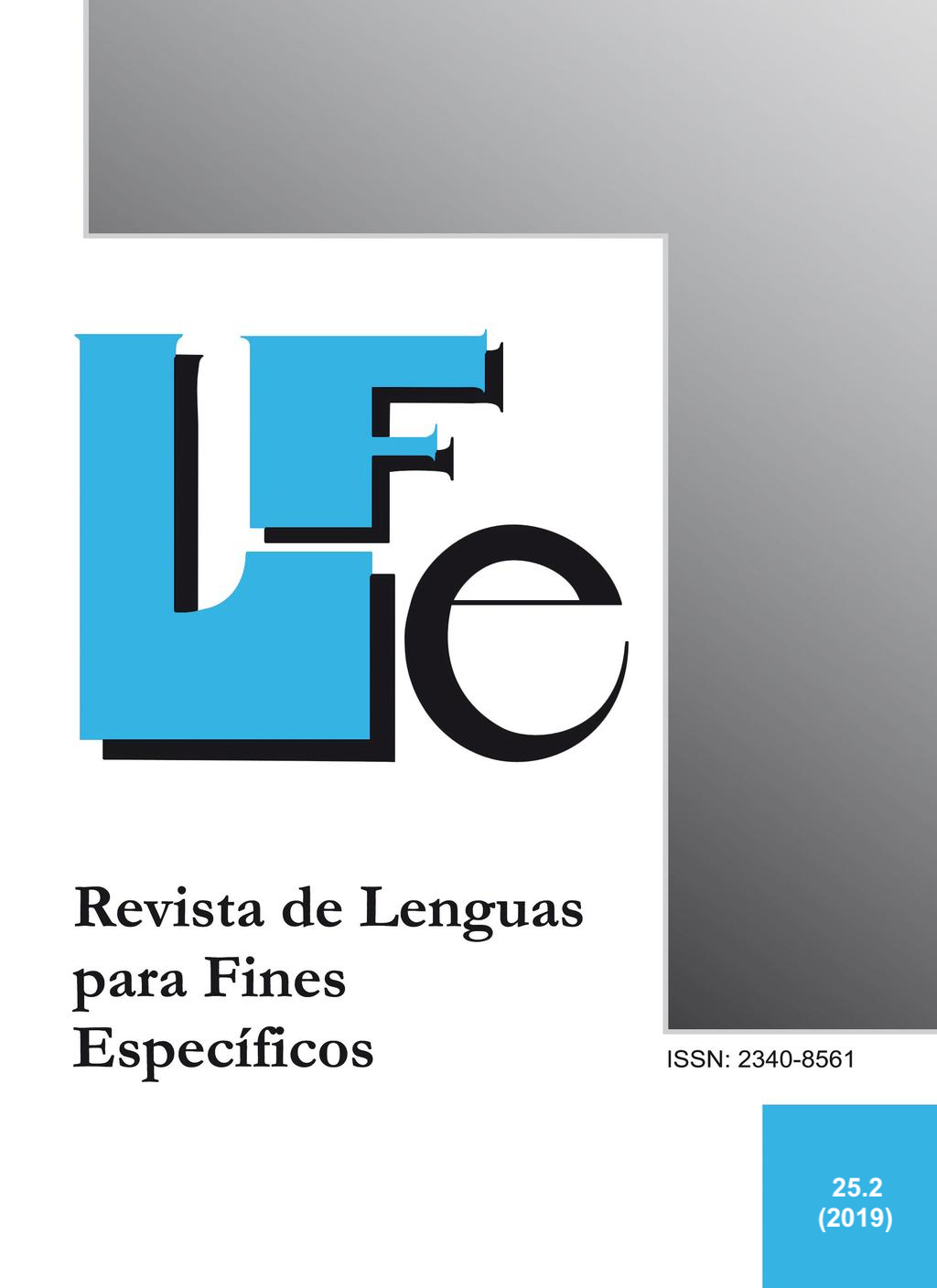Acquisition of French lexicon for tourism through a WebQuest
Keywords:
Tourism and the Internet, hotel management vocabulary, Webquest, French language, foreign languages learningAbstract
The growing flow of the foreign Tourism to Spain demands competent and well-trained professionals. One of the fundamental areas of training is foreign language, and therefore, they must dominate both: the general language and the specific one that implies the precise knowledge of a specialized lexicon not always easy to acquire. To respond to the training needs in foreign languages we present other ways to discover the lexicon of tourism in French language, specifically that of hotel management. The criterion of selection of these terminological section has been determined, firstly, by the verification of the significant presence of Francophone tourists in Spain at present; secondly, by the specificity, frequency and difficulty of acquisition of this type of lexicon in professional practice; and, finally, by the interest of taking advantage of specific lexicographic tools already available on the web. For this purpose, we present a WebQuest called À la recherche du lexique de la gestión hôtelière, which contains a series of guided activities that facilitate the discovery and acquisition of the lexicon of hotel management in its real use.
Downloads
References
Artusi, A., Baynat, M.E., Cantón, M.L. & otros (2014). Multilingual Dictionary of Tourism. COMETVAL, Universidad de Valencia, <http://tourismdictio.uv.es> [19/02/2019].
Battaner, P. (2017). Prólogo. Enseñar Léxico en el aula de español. El poder de las palabras. Col. Cuadernos de didáctica (pp. 7-9). Barcelona: Difusión.
Baynat, M.E. (2017). El léxico de la gestión turística en lengua francesa en el Diccionario Multilingue de Turismo: análisis contrastivo con la lengua inglesa. Çédille, revista de estudios franceses, 13 (pp. 53-82). <https://cedille.webs.ull.es/13/03baynat.pdf> [19/02/2019].
Baynat M.E., Dolón, R., Estorell, M., González V. & otros (2016). Manual de buenas prácticas discursivas: estrategias lingüísticas para la promoción turística en la red. Anejo nº 8 de Normas. Revista de Estudios Lingüísticos Hispánicos. Monografías científicas. Edición: Tecnolingüística S.L. <https://ojs.uv.es/index.php/normas/pages/view/anejos> [19/02/2019].
Bonomi, M. (2014). Linguaturismo: un glosario de gestión del turismo español-italiano. Normas, Revista de Estudios Lingüísticos Hispánicos, Anejo nº 6, 12-27.
Calvi, M.V. (2000). Il linguaggio spagnolo del turismo. Viareggio: Baroni.
Calvi, M.V. (2010). Los géneros discursivos en la lengua del turismo:una propuesta de clasificación. Ibérica, 19, 9-32.
Calvi, M.V. (2016). Lingua spagnola e turismo. En López Santiago, M. & Giménez, Folqués D. (coord.) El léxico del discurso turístico 2.0 (pp.17-35). Valencia: Publicaciones IULMA-Universitat de Valencia.
Caspar, P. (1991). Preámbulo. Organiser l’apprentissage des langues étrangères. París: D’Organisation.
Corpus Mutilingüe de Turismo de la Universidad de Valencia (COMETVAL), <https://www.uv.es/cometval/wikibase/cas/index.wiki> [19/02/2019].
Dodge, B. (1995). WebQuest: A Technique for Internet-Based Learning. Distance Educator 1(2), 10-13.
Eurrutia, M., Planelles, M. & Aragón, M. (2006). El lenguaje del turismo. En Alcaráz Varó, E., Mateo Martínez, J. & Yus Ramos, F. (coord..), Las lenguas profesionales y académicas, (pp.233-246). Barcelona: Ariel.
Eurrutia, M. (2016). E-Tourisme intéractif sur le web 2.0: enjeux culturels du lexique employé dans les infomédiations sur le discours touristique solidaire. En López Santiago, M. & Giménez, Folqués D. (coord.) El léxico del discurso turístico 2.0 (pp.85-115). Valencia: Publicaciones IULMA-Universitat de Valencia.
Macià Espadas, N. (2005). Le français comme langue spécifique: le français du tourisme. En Arráez Llobregat, J.L & Sirvent Ramos, A. (coord.), Espacio y texto en la cultura francesa (pp.1869-1878). Alicante: Servicio de publicaciones de la universidad de Alicante.
Ministerio de Energía, Turismo y Agenda Digital (MINETAD). <http://www.minetad.gob.es/es-es/gabineteprensa/notasprensa/2017/documents/turespa%C3%B1a%20avance%20cierre%202016.pdf> [19/02/2019].
Ministerio de Industria, Comercio y Turismo. <https://www.mincotur.gob.es/es-es/gabineteprensa/notasprensa/2014/documents/20180705 presentación datos de turismo 2018.pdf>. [19/02/2019].
Organización Mundial del Turismo (OMT). Glosario de Turismo <http://statistics.unwto.org/sites/all/files/docpdf/glossaryterms.pdf> [19/02/2019].
Planelles, M. (2016). Sinonimia y neología en el lenguaje del turismo en francés. En López Santiago, M. & Giménez, Folqués D. (coord.) El léxico del discurso turístico 2.0 (pp.175-196). Valencia: Publicaciones IULMA-Universitat de Valencia.
Portal de estadísticas <https://es.statista.com/estadisticas/475122/numero-de-turistas-franceses-en-espana/> [19/02/2019].
Proyecto SLATES (Second Life Aplicado a las Tutorías en Enseñanza Superior) <http://slates.blogs.uv.es/presentacion> [19/02/2019].
Suau, T. (2012). El turista 2.0 como receptor de la promoción turística: estrategias lingüísticas e importancia de su estudio. Pasos. Revista de Turismo y Patrimonio cultural,10 (4), 143-153.
Varela Méndez, R. (2007). Hacia una nueva caracterización del inglés para fines específicos (turismo). Didáctica. Lengua y Literatura, 19, 327-345.
Downloads
Published
How to Cite
Issue
Section
License
Authors who publish with this journal agree to the following terms:
- Authors retain copyright and grant the journal right of first publication with the work simultaneously licensed under a Creative Commons Attribution License that allows others to share the work with an acknowledgement of the work's authorship and initial publication in this journal.
- Authors are able to enter into separate, additional contractual arrangements for the non-exclusive distribution of the journal's published version of the work (e.g., post it to an institutional repository or publish it in a book), with an acknowledgement of its initial publication in this journal.
- Authors are permitted and encouraged to post their work online (e.g., in institutional repositories or on their website) prior to and during the submission process, as it can lead to productive exchanges, as well as earlier and greater citation of published work (See The Effect of Open Access).

Revista de Lenguas para fines específicos is licensed under a Creative Commons Reconocimiento-NoComercial-SinObraDerivada 4.0 Internacional License.
























